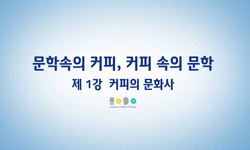The modernologistic observation of the city, society, and humans by using various cafes and waitresses is a characteristic of Park Tae-won’s narratives. And especially noteworthy in this investigations of customs is the cohabitation of a cafe waitre...
http://chineseinput.net/에서 pinyin(병음)방식으로 중국어를 변환할 수 있습니다.
변환된 중국어를 복사하여 사용하시면 됩니다.
- 中文 을 입력하시려면 zhongwen을 입력하시고 space를누르시면됩니다.
- 北京 을 입력하시려면 beijing을 입력하시고 space를 누르시면 됩니다.
부가정보
다국어 초록 (Multilingual Abstract)
The modernologistic observation of the city, society, and humans by using various cafes and waitresses is a characteristic of Park Tae-won’s narratives. And especially noteworthy in this investigations of customs is the cohabitation of a cafe waitress and a male rumpen. It implies a number of social problems and at the same time expresses the collapse of a certain era and ideology. In addition, “Mary” and “Peace Cafe” of 『Scenery of the Stream side(천변풍경)』 show an example of that downfall, implying a real waitress named Kim Il-song who was a movie star, and the real place called Peace Cafe in Seoul.
Meanwhile, Park Tae-won also writes many texts related to the coffee shops. The tea rooms mediate Park Tae-won’s own life and various aspects of modernity through daily life. Furthermore, the coffee shop is a place that makes Kubo sharply distinguish between snobs who order “garupis(Calpis)” of “obscene color” and Kubo’s “friends”. The fact that Kubo rejects Calpis and chooses “tea or coffee” is important in that it implies an attitude toward the war situation in which eventually coffee will be disappeared even in the hotel, and Kubo would be recommended for “garupis” that doesn’t suit his taste.
In this way, tea houses, cafes, and waitresses appearing in Park Tae-won literature have politics. Therefore, it is noteworthy that Kyoungseong Modernism is analyzing the “a cup of tea” that Kubo says while examining the “hidden politics” of Park Tae-won’s texts.
However, the problem of this book is that it gives great meaning to the years stamped on the coins without comparing the three texts of <One Day of Novelist Kubo(소설가 구보씨의 일일)>, which respectively suggest different years. Another problem is that, Kubo’s “tea” is viewed as cocoa, and Ishikawa Takuboku’s <ココアのひと匙> is translated as ‘one cup of cocoa’ rather than ‘one spoon of cocoa’.
In short, Kubo’s desire to “share a cup of tea and be in the same thought” is not limited to “frustrated anarchist politics”, that is, “same thought,” as the author of Kyoungseong Modernism says. More importantly, Kubo tried to share “a cup of tea”. In other words, at the “darkroom” of ‘Great East Asia’, where only “garupis” will remain, Kubo and his friends who share “personality, culture, and hobbies” tried not to lose the “one corner of a tea house” that treats only “coffee and tea”.
국문 초록 (Abstract)
카페와 여급을 다양하게 활용함으로써 도시, 사회, 인간에 대한 고현학적인 관찰을 시도하는 것은 박태원 소설의 한 특징이다. 그런데 이 풍속 탐구 중 특히 주목할 것은 카페 여급과 룸펜 ...
카페와 여급을 다양하게 활용함으로써 도시, 사회, 인간에 대한 고현학적인 관찰을 시도하는 것은 박태원 소설의 한 특징이다. 그런데 이 풍속 탐구 중 특히 주목할 것은 카페 여급과 룸펜 남성의 생활이다. 이는 여러 사회적 문제들을 함축하는 동시에 한 시대와 이념의 몰락을 표현한다. 그리고 『천변풍경』의 “메리”와 “평화카페”는, 영화배우였던 김일송과 서울의 평화카페라는 현실의 인물과 장소를 암시하면서 그 몰락의 한 사례를 보여준다.
한편 박태원은 다방과 관련된 텍스트들도 여러 편 쓴다. 여기서 다방은 박태원 자신의 삶과 근대의 여러 양상들을 일상으로써 매개한다. 또한 다방은 구보로 하여금 “외설한 색채”의 “가루삐스”를 주문하는 속물들과 구보의 “벗”들을 날카롭게 구분하게 하는 장소이기도 하다. 구보는 칼피스를 거절하고 “홍차나 커피”를 선택하는데, 이는 호텔에서조차 커피가 사라지게 함으로써 급기야 그의 취향에 맞지 않는 “가루삐스”를 권유받도록 할 ‘시국’에 대한 태도를 함축한다는 점에서 중요하다.
이렇게 박태원 문학의 다방, 카페, 여급은 정치성을 지니며, 따라서 『경성 모더니즘』이 박태원 텍스트의 “감춰진 정치성”에 대해 천착하면서, 구보가 말하는 “한 잔의 차”를 분석하고 있음은 주목된다. 하지만 이 책의 문제는 각각 다른 연도를 제시하는 <소설가 구보씨의 일일>의 세 가지 텍스트들을 비교하지 않은 채, 다섯 개의 동전에 찍힌 연도에 큰 의미를 부여하거나, 구보가 말하는 “차”를 코코아로 보면서, 이시카와 다쿠보쿠의 <ココアのひと匙>를 ‘코코아 한 스푼’이 아니라 ‘코코아 한 잔’으로 번역한다는 점이다.
요컨대 구보가 말하는 “한 잔의 차를 나누며, 또 같은 생각 속에” 있고 싶다는 욕망의 지향은 『경성 모더니즘』의 저자가 말하는 “좌절된 아나키즘 정치학”, 즉 “같은 생각”에만 한정되지는 않는다. 더욱 중요한 것은 그가 “한 잔의 차를” 나누고자 했다는 것, 다시 말해 결국 “가루삐스”만 남게 될 ‘대동아’의 “암실”에서, “성격, 교양, 취미”를 공유하는 구보와 그 벗들이 “꼭 가배와 홍차만” 취급하는 “찻집 한 구석”을 잃지 않으려 했다는 점이다.
동일학술지(권/호) 다른 논문
-
역사와 허구의 접합, 『토지』의 연해주 지역 형상화 방식
- 한국문학연구학회
- 이승윤
- 2021
- KCI등재
-
1920년대 프로문학에서 ‘감각’의 의미와 변용 - 김기진의 초기 비평 텍스트를 중심으로
- 한국문학연구학회
- 김지아
- 2021
- KCI등재
-
근대 희곡의 사운드스케이프 - 소리의 연극성에 대한 문화사회학적 고찰
- 한국문학연구학회
- 우수진
- 2021
- KCI등재
-
근대 미디어의 담론 전개 전략 연구 - 『만세보』의 교육 담론을 중심으로
- 한국문학연구학회
- 손동호
- 2021
- KCI등재





 KCI
KCI KISS
KISS




